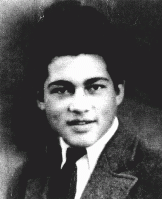You searched for: nazi germany
<< Previous | Displaying results 1141-1150 of 1276 for "nazi germany" | Next >>
-
Janusz Korczak
ArticleJanusz Korczak ran a Jewish orphanage in Warsaw. He and his staff stayed with the children even as German authorities deported them to their deaths at Treblinka in 1942.
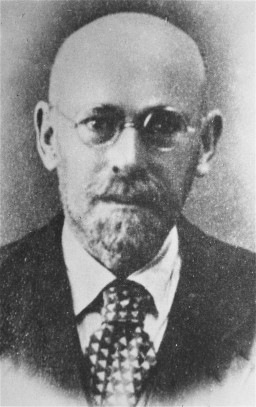
-
Displaced Persons Camps in the Steiermark District
ArticleAfter WWII, many Holocaust survivors, unable to return to their homes, lived in displaced persons camps in Germany, Austria, and Italy. Read about Steiermark District DP camps.
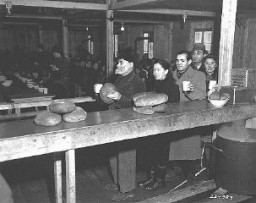
-
King Christian X of Denmark
ArticleDid King Christian X of Denmark wear a yellow star in support of the Danish Jews? Read more about the historical truth behind the legend.
-
Axis Invasion of Yugoslavia
ArticleThe Axis powers invaded Yugoslavia on April 6, 1941. Learn about the Axis invasion and partition, collaboration, and the fate of Jewish people living in Yugoslavia.
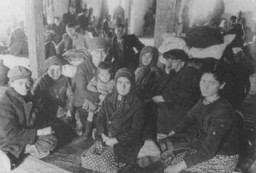
-
Laura Ellenbogen
ID CardLaura was one of five children born to a Jewish family in the southeastern Polish town of Rozwadow. Jews comprised almost two-thirds of the town's population. Laura's father worked as a wholesaler, providing families in the area with grain, potatoes and other produce. Laura attended one of the town's public schools. 1933-39: Germany and the Soviet Union partitioned Poland [as a result of the Nazi-Soviet Pact] in September 1939. Laura's town lay on the demarcation line. On September 24 the Germans reached…
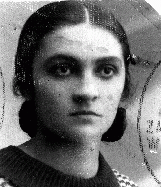
-
Raszka (Roza) Galek
ID CardRoza was born to a Jewish family in a predominately Catholic village near Warsaw. Her father owned a prosperous pearl button factory that employed some 100 people. They shared a large home with Roza's grandmother who ran a general store and bakery in the village. Roza and her three sisters attended Polish schools and took Hebrew lessons at the towns' synagogue. 1933-39: Roza's father frequently did business in Warsaw so the family moved there in 1934. They loved the city, and often went to concerts and…
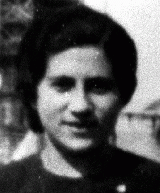
-
Reidar Dittmann
ID CardReidar was the third of four sons born to religious Lutheran parents in a small seafaring and whaling town along the Norwegian coast. Reidar's father was a civil servant. Reidar attended public school and dreamed of becoming a musician. 1933-39: Although Reidar was not interested in politics, he sympathized with his Jewish neighbors who had come as refugees from Germany. In fall 1939 he was saddened when Germany attacked Poland and the USSR attacked Finland. Several days later, his oldest brother passed…
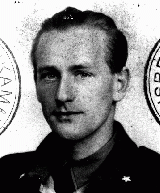
-
Renate Guttmann
ID CardRenate, her twin brother, Rene, and their German-Jewish parents lived in Prague. Shortly before the twins were born, Renate's parents had fled Dresden, Germany, to escape the Nazi government's policies against Jews. Before leaving Germany to live in Czechoslovakia, Renate's father, Herbert, worked in the import-export business. Her mother, Ita, was an accountant. 1933-39: Renate's family lived in a six-story apartment building along the #22 trolley line in Prague. A long, steep flight of stairs led up to…
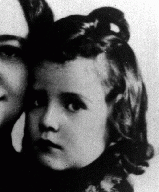
-
Rene Guttmann
ID CardRene, his twin sister, Renate, and their German-Jewish parents lived in Prague. Shortly before the twins were born, Rene's parents had fled Dresden, Germany, to escape the Nazi government's policies against Jews. Before leaving Germany to live in Czechoslovakia, Rene's father, Herbert, had worked in the import-export business. His mother, Ita, was an accountant. 1933-39: Rene's family lived in a six-story apartment building along the #22 trolley line in Prague. A long, steep flight of stairs led up to…
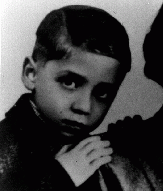
-
Karl Stojka
ID CardKarl was the fourth of six children born to Roman Catholic parents in the village of Wampersdorf in eastern Austria. The Stojkas belonged to a tribe of Roma ("Gypsies") called the Lowara Roma, who made their living as itinerant horse traders. They lived in a traveling family wagon, and spent winters in Austria's capital of Vienna. Karl's ancestors had lived in Austria for more than 200 years. 1933-39: Karl grew up used to freedom, travel and hard work. In March 1938 his family's wagon was parked for the…
